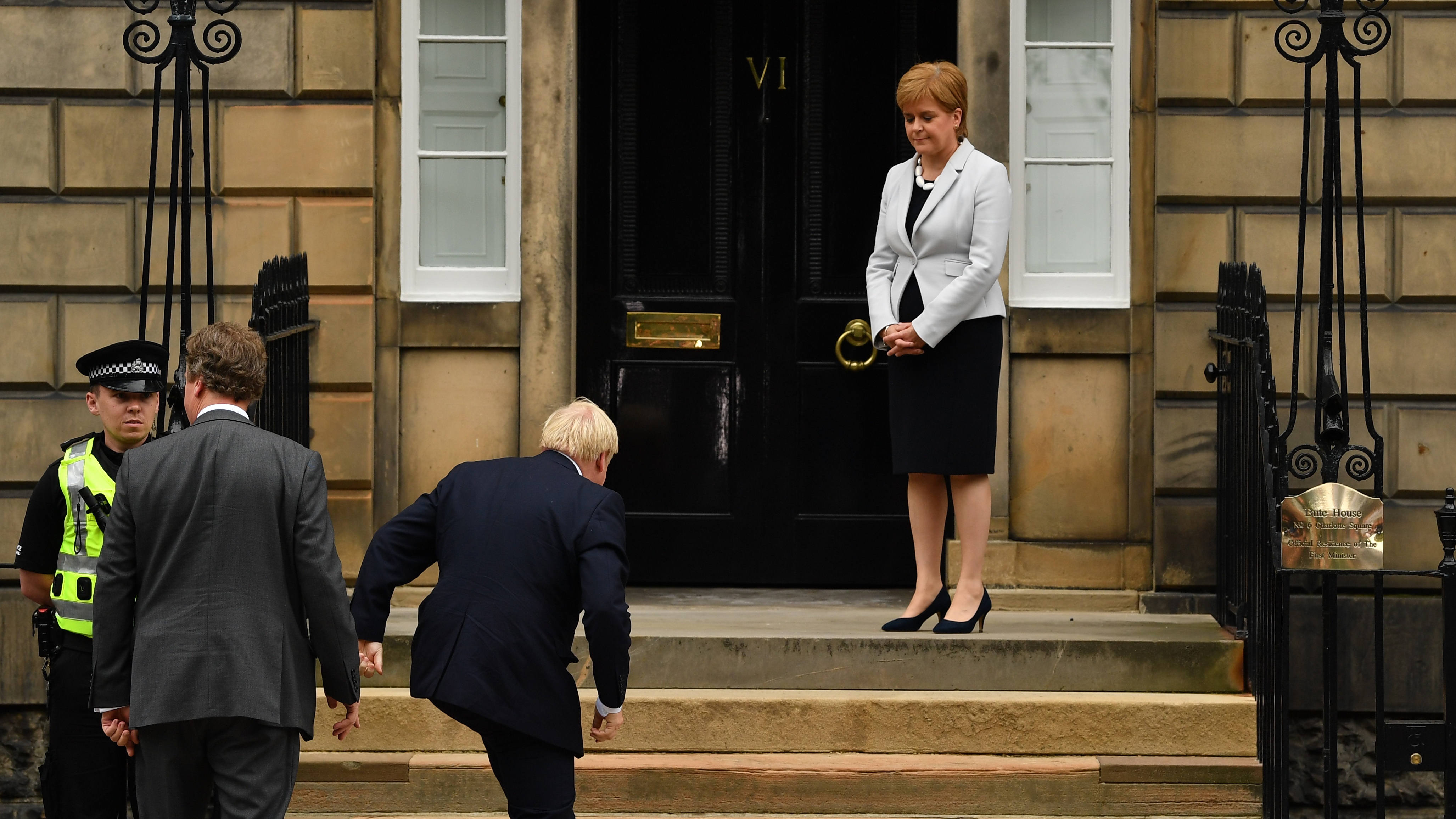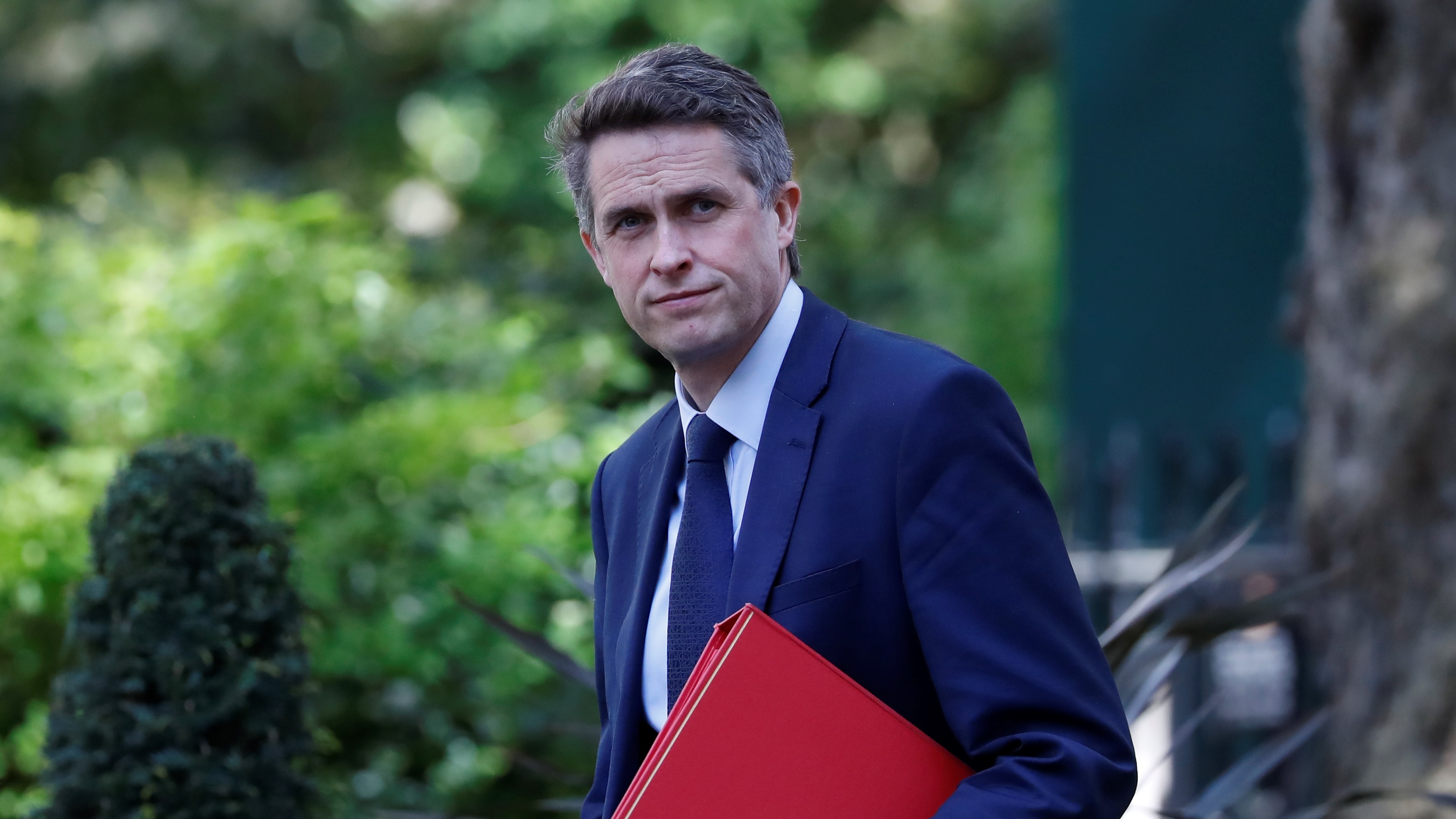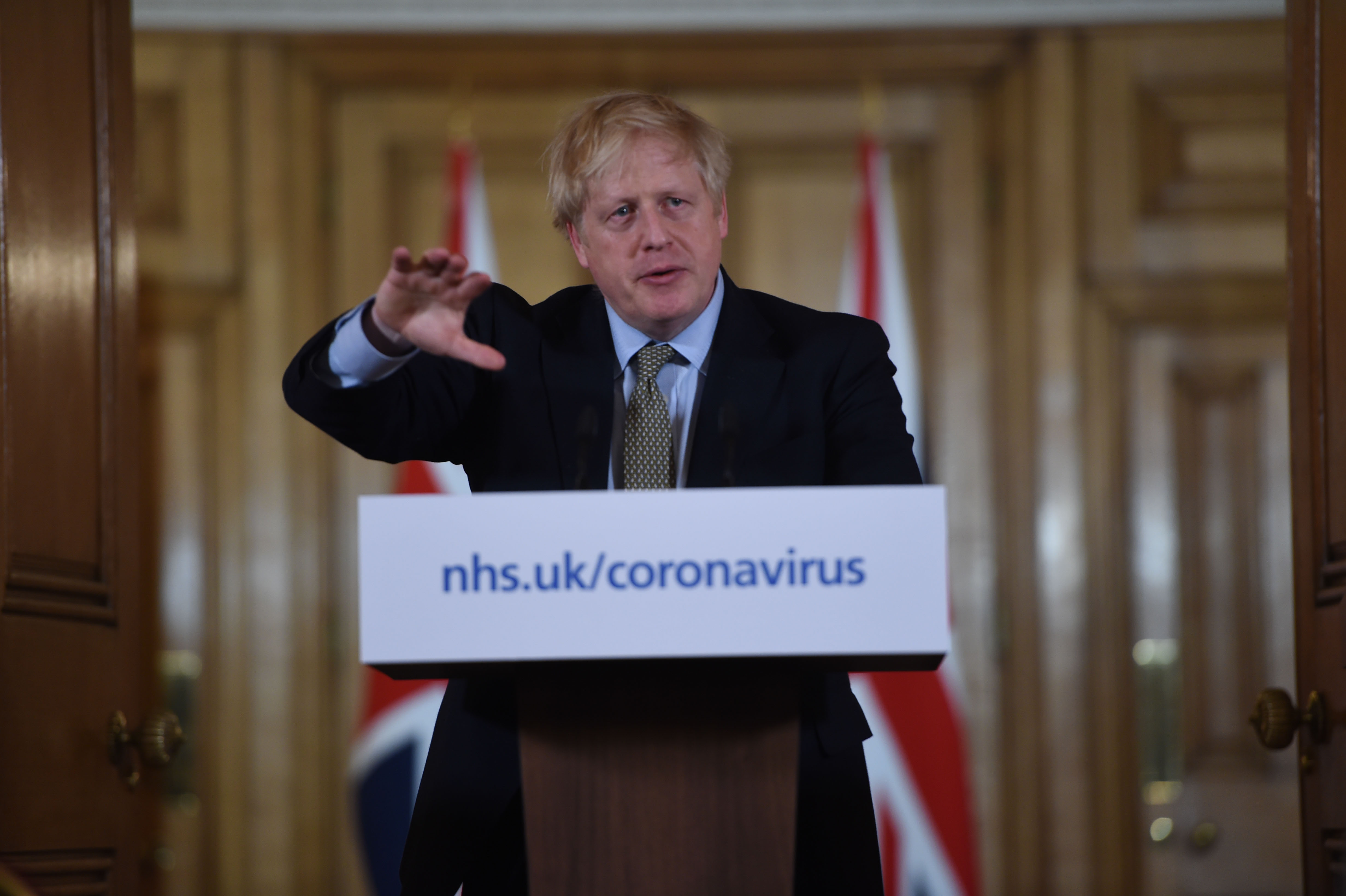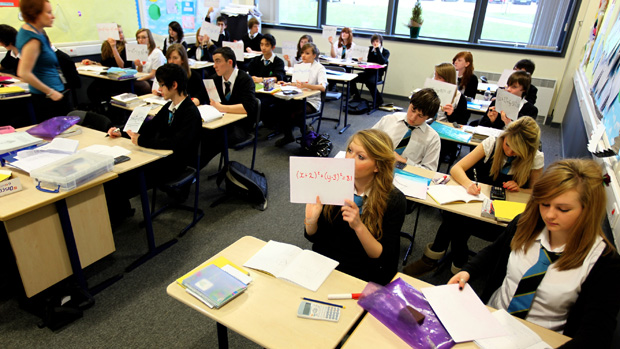Was Boris Johnson right to label Scottish devolution a ‘disaster’?
Prime minister’s intervention may betray Conservative fears over the state of the union

A free daily email with the biggest news stories of the day – and the best features from TheWeek.com
You are now subscribed
Your newsletter sign-up was successful
Alex de Ruyter, director of the Centre for Brexit Studies at Birmingham City University and David Hearne, researcher at the Centre for Brexit Studies at Birmingham City University, on the prime minister’s divisive devolution criticism.
When the UK prime minister, Boris Johnson, recently told a group of MPs that devolution in Scotland has been a “disaster” he raised an interesting question. Has handing greater powers to the Scottish government been a bad move, and, if so, for whom?
Johnson’s comments have been taken as a boon for the independence movement, including among members of the Scottish National Party (SNP), which is in government in Scotland. Even before he said it, polling put support for Scottish independence at its highest ever – at about 60%.
The Week
Escape your echo chamber. Get the facts behind the news, plus analysis from multiple perspectives.

Sign up for The Week's Free Newsletters
From our morning news briefing to a weekly Good News Newsletter, get the best of The Week delivered directly to your inbox.
From our morning news briefing to a weekly Good News Newsletter, get the best of The Week delivered directly to your inbox.
And looking at the data, it does appear that devolution has been associated with a period of good economic performance.
The good
If we look at the Scottish workforce, we find that Scottish employees appear somewhat better off than their English counterparts. In 1999, before devolution, average (median) weekly wages for full-time Scottish employees were more than 5% lower than their English counterparts.
By 2019, that gap had halved. In 2020 (where caution is needed in interpreting the figures due to the pandemic) they are actually earning more, on average than their English counterparts.
A free daily email with the biggest news stories of the day – and the best features from TheWeek.com
This comparison actually rather flatters England, because the cost of living is higher in England. If we compare instead the north-west (a region with a larger population than Scotland), where prices are similar, we see that median full-time wages were on a par in 1999 but by 2019 Scottish median wages were nearly 5% higher.
This has been concentrated at the lower end of the income spectrum where improvements arguably are needed most.
A similar story can be told in terms of productivity, where growth in Scotland has been significantly more rapid than in England (increasing from 1.3% below that in North West England to a remarkable 6.5% above) in the two decades since devolution.
The bad
However, in contrast, in terms of life expectancy, Scotland’s performance has been mediocre. Scots can expect to live fewer years than the English, Welsh or Northern Irish.
Since the pre-devolution period, life expectancy for Scottish men increased at a broadly similar rate to that in the other UK nations (by roughly four and a half years, which is slightly less than England but slightly more than Wales). Life expectancy for Scottish women has fallen somewhat further behind that in England.
However, this data can be somewhat deceptive. It’s extremely difficult to disentangle historical lifestyle factors from the impacts of policy. Certain behaviours known to reduce lifespan are more common in Scotland: we know, for example, that Scots are more likely to smoke than the English.
And comparing Scotland to England as a whole is rather misleading since London is driving a significant chunk of the improvements in England. We have data on regional life expectancy going back to 2001-3. Scottish life expectancy has increased by 2.28 years for women and 3.66 years for men during that period and the commensurate figures for England are 2.67 and 3.56 respectively.
However, life expectancy in London has increased by 3.9 years for women and a remarkable 4.9 years for men in less than two decades. The remaining regions of England look very similar to Scotland.
Another area where one can legitimately criticise the SNP Holyrood administration is on education. Scotland spends considerably more (per child) on pre-tertiary education than any region in England (£6,191 per child against £5,216 in England – and the latter includes the London weighting).
Yet it appears to get poor results. Direct comparisons are difficult because of different systems – but Scotland’s scores in international comparisons are below England’s.
The verdict
Scotland’s government is far from perfect, and there are clear areas for improvement. However, that is a failure of a specific administration and not a failure of devolution. Indeed, it is far from clear that Westminster would do any better.
What evidence we have, then, the worst you can say about devolution when it comes to these factors is that the evidence is mixed. And, generally, it looks good.
Indeed, to the extent that the health disparities evident in Scotland represent a legacy of decades of diet, alcohol consumption and jobs in defunct sectors such as mining that carried particular health risks, it is still too early to assess the impact of devolved government in tackling deep-seated health problems.
In economic terms, far from being a disaster, Scotland has performed reasonably well since it was handed greater powers. Devolution, we would argue, is only a “disaster” from the perspective of those such as the prime minister, who see the success of a SNP government in Holyrood (having been in power since 2007) as a threat to Scotland remaining in the UK.
If the economic performance of Scotland relative to the English regions at least is anything to go by, then the UK needs more devolution and not less.
Alex de Ruyter, director of the Centre for Brexit Studies, Birmingham City University and David Hearne, researcher at the Centre for Brexit Studies, Birmingham City University
This article is republished from The Conversation under a Creative Commons license. Read the original article.
-
 Local elections 2026: where are they and who is expected to win?
Local elections 2026: where are they and who is expected to win?The Explainer Labour is braced for heavy losses and U-turn on postponing some council elections hasn’t helped the party’s prospects
-
 6 of the world’s most accessible destinations
6 of the world’s most accessible destinationsThe Week Recommends Experience all of Berlin, Singapore and Sydney
-
 How the FCC’s ‘equal time’ rule works
How the FCC’s ‘equal time’ rule worksIn the Spotlight The law is at the heart of the Colbert-CBS conflict
-
 Coronavirus: a timeline of the U-turn on school closures
Coronavirus: a timeline of the U-turn on school closuresUnder the Radar Boris Johnson rules out return to classrooms just 24 hours after insisting reopening was safe
-
 Reaction: Boris Johnson pledges £1bn ‘decade of spending’ on schools
Reaction: Boris Johnson pledges £1bn ‘decade of spending’ on schoolsIn Depth Headteachers and analysts say funding falls well short of what is needed
-
 UK schools to close until further notice over coronavirus
UK schools to close until further notice over coronavirusIn Depth Exams are cancelled, but provision will be made for children of key workers
-
 Leaked documents reveal Government’s controversial plans for schools
Leaked documents reveal Government’s controversial plans for schoolsSpeed Read Disciplinary crackdown and new wave of free schools form part of dramatic education overhaul